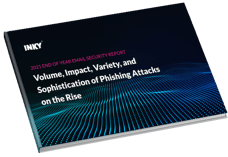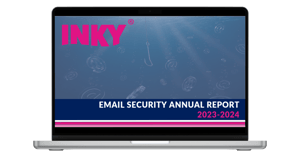In case you haven’t noticed, we’re currently in the middle of the world’s biggest global experiment in remote working. While millions of Americans don’t have the luxury of working from home, it is estimated that with the COVID-19 pandemic, close to 50% of U.S. workforce might currently be remote.1 You might think that employers around the globe are chomping at the bit to get employees back into the office and under a more watchful eye, but for many, that could not be further from the truth.
- Facebook upgraded their employees’ internet and gifted each a Portal video chat device, free of charge.
- Shopify and Twitter have gifted their newly remote employees up to $1,000 to set up their new home office.2
- Indeed has been purchasing standing desks, chairs and lighting for its work-from-home staff.2
What does this say? That the working remotely is quickly going from a pandemic-induced necessity to the new norm. One huge upside of this new norm is its financial impact. According to one source, employers can save an average of $11,000 each year for every person who works from home half of the time. Workers, on the other hand, can save between $2,500 and $4,000 a year working remotely half time.3
Now, what about the downsides? Well, there are a few. Individually, one of the biggest things to watch for is loneliness and isolation. From the corporate perspective, one particular nemesis could far outweigh any financial gains you might reap from a virtual workforce—remote phishing scams.
Since the start of the COVID-19 pandemic, a number of government alerts have been issued, warning the public of the sharp rise in phishing attacks. One such warning came from the U.S. Cybersecurity and Infrastructure Security Agency (CISA) and spoke to the vulnerabilities companies face with the extended use of enterprise virtual private networks (VPNs).4 Remote employees often need to log into company VPNs from home in order to access the files they need to do their job. Sadly, many companies are not equipped to fight off unwanted cybercriminals under today’s ‘new norm’.
CISA warned, “Malicious cyber actors may increase phishing emails targeting teleworkers to steal their usernames and passwords.”4 One of the newer phishing scams involves emails that looks like Zoom invitations but have links automatically downloads malware onto the computer. To make matters worse, IBM Security recently released the results to a Work for Home Survey with these disturbing results:5
- 93% of those newly working from home are confident in their company's ability to keep personally identifiable information (PII) secure while working remotely, yet 52% are using their personal laptops for work – often with no new tools to secure it, and 45% haven't received any new training.
- More than 50% of respondents don't know of any new company policies related to customer data handling, password management and more.
- More than 50% of new work from home employees are using their own personal computers for business use, however 61% also say their employer hasn't provided tools to properly secure those devices.
All of this leaves little doubt that employers need to be quickly taking control in order to help ensure that their companies don’t fall prey to one of the many, many phishing scams currently plaguing corporations. While there are many solutions to this problem, most will only fix part of the problem. Phishing training is not enough. A heightened email quarantine system won’t keep the most sophisticated email threats from reaching employees’ inboxes. Even Microsoft’s phishing protection isn’t sophisticated enough to keep your company safe.
The latest technology in the war against phishing calls for machine learning, computer vision, and artificial intelligence. INKY is a cloud-based email security solution that is quickly becoming the choice of companies looking to protect themselves and their companies from hackers - in the office and remotely. Whether you are using Office 365, G-Suite, Microsoft Exchange or another email solution, INKY will see things other phishing solutions can’t. And, INKY works on any device and places highly visible warning banners directly in the email.
Whether you’re planning to expand your remote workforce or not, email phishing is a serious issue that needs serious solutions. Contact INKY to learn more and to schedule a free demonstration.
----------------------
INKY® is the emerging hero in the war against phishing. An award-winning cloud-based email security solution, INKY® prevents the most complex phishing threats from disrupting or even immobilizing your company’s day-to-day business operations. Using computer vision, artificial intelligence, and machine learning, INKY® is the smartest investment you can make in the security of your organization. INKY® is a proud winner of the NYCx Cybersecurity Moonshot Challenge and finalist in the 2020 RSAC Innovation Sandbox Competition. Learn more about INKY® or request an online demonstration today.
2Source: https://www.cnbc.com/2020/06/03/companies-are-paying-for-their-workers-home-offices.html
3Source: https://www.npr.org/2020/06/22/870029658/get-a-comfortable-chair-permanent-work-from-home-is-coming



